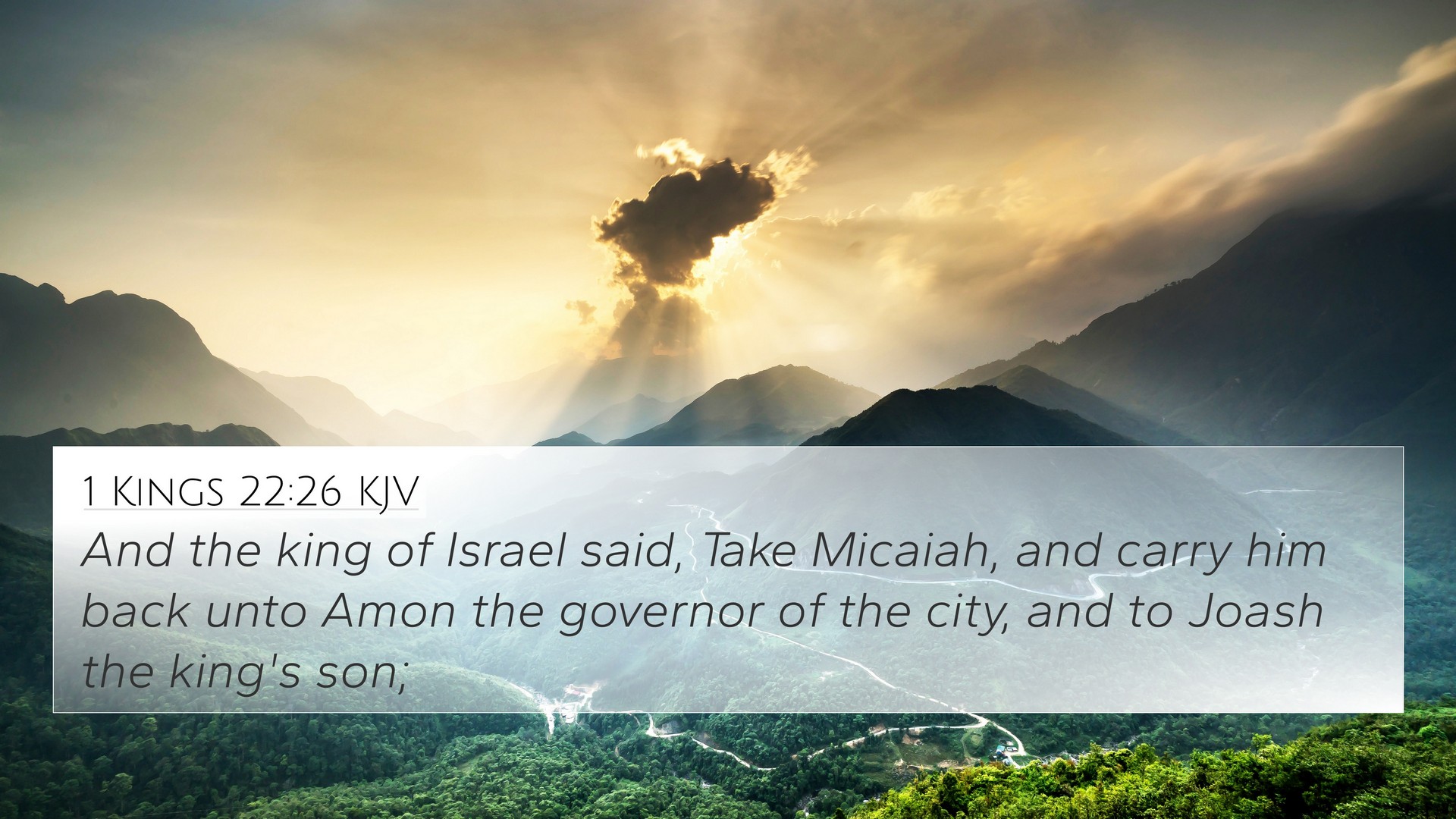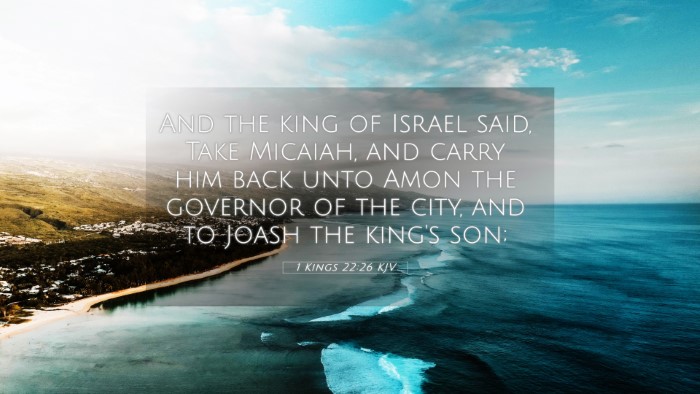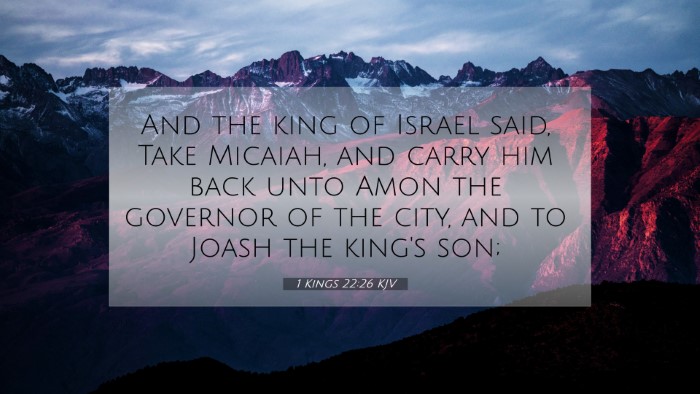Understanding 1 Kings 22:26
Verse: "And the king of Israel said, Take Micaiah, and carry him back to Amon the governor of the city, and to Joash the king's son;" (1 Kings 22:26, KJV)
Contextual Background
This verse is situated within a profound narrative about King Ahab of Israel and his inquiry regarding the prophetic counsel from Micaiah concerning a military campaign against Ramoth-Gilead. The surrounding verses depict a stark contrast between the false prophets and the true prophet of the Lord, Micaiah.
Interpretation and Insights
Micaiah was despised by Ahab for consistently prophesying against him. This verse highlights the tensions between worldly authority and divine truth. Ahab's intent was to silence Micaiah, reflecting on the nature of leaders who prioritize personal gain over God's will.
Commentary Insights
- Matthew Henry: Henry discusses how Ahab’s treatment of Micaiah reveals the heart of a king unwilling to hear the truth. Ahab's rejection of Micaiah signifies a broader refusal to acknowledge God's voice and plan.
- Albert Barnes: Barnes emphasizes the relationship between Ahab's defiance and the subsequent fallout from ignoring divine warnings. He connects this action to a theme of divine justice, where God ultimately holds leaders accountable for their choices.
- Adam Clarke: Clarke remarks on the implications of Ahab's command, considering that Micaiah was to be imprisoned, showcasing the king's desire to maintain control over the narrative regarding his fate in battle.
Thematic Connections
This verse can be cross-referenced with several key themes and scriptures that amplify its meaning and significance in the biblical narrative. Below are notable cross-references:
- 1 Kings 22:11-12: These verses illustrate the contrast between the 400 false prophets presenting a favorable prophecy and Micaiah's lone voice warning of danger.
- 2 Chronicles 18:25-27: A corresponding narrative detailing the consequences of Ahab's actions against Micaiah, emphasizing the prophetic role and the persecution of truth-tellers.
- Jeremiah 26:8-9: This passage reflects on the treatment of prophets in Israel, mirroring Micaiah's experience and the response of those who reject God's messages.
- Isaiah 30:10: Here, the people desire prophets who speak smooth things, highlighting a recurring theme of resistance to divine truth.
- Luke 6:26: This New Testament verse speaks to the notion of woe upon those who are well-spoken of, resonating with Micaiah's experience of being scorned for his unpopular truth.
- Proverbs 29:27: This proverb underscores the conflict between the righteous and the wicked, akin to Micaiah's interaction with Ahab and his prophets.
- Galatians 4:16: The apostle Paul poses a similar question about the reception of truth, drawing parallels with how Micaiah is received by an unyielding Ahab.
- Revelation 11:10: This verse speaks of the reaction to prophetic voices, paralleling Micaiah's treatment by Ahab and the collective response to those who uphold divine truth.
- Matthew 5:10: Blessed are those who are persecuted for righteousness' sake; such a sentiment echoes Micaiah's predicament as a defender of God's Word.
- Acts 7:52: Stephen references the historical pattern of rejecting prophets, providing insight into why Micaiah is treated as he is.
Concluding Thoughts
The story of Micaiah serves as a powerful testament to the perennial struggle between truth and power. As believers and scholars analyze 1 Kings 22:26, it becomes evident that this episode is not merely historical; it fosters deeper reflection on the implications of prophecy, leadership accountability, and the often contentious relationship between divine guidance and human authority.
Tools for Deeper Study
For those interested in exploring the connections between Bible verses, various tools may enhance your understanding of scriptural cross-referencing. Utilizing a Bible concordance or employing a Bible cross-reference guide can significantly aid in uncovering related scriptures and themes. Some methodologies for effective cross-referencing include:
- Bible Cross-Reference System: Engaging with texts that cross-reference different books of the Bible, particularly between the Old and New Testament.
- Cross-Referencing Bible Study Methods: Introducing thematic studies that connect key ideas across multiple scriptures.
- Comprehensive Bible Cross-Reference Materials: Exploring resources that offer elaborate commentary and references for an in-depth understanding.


